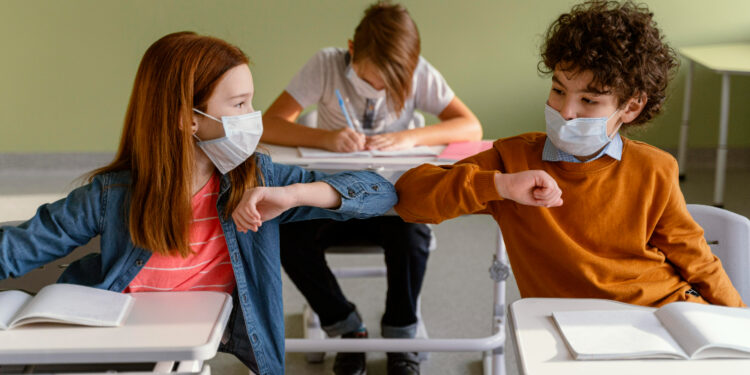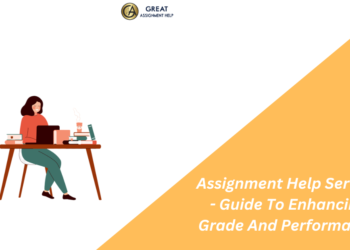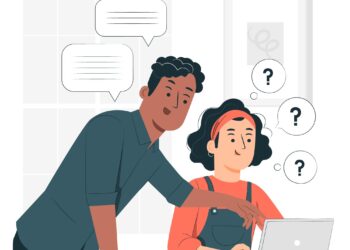The 2020 pandemic has changed how the world works, and individuals think, and school is no different. Schools, universities, and other places have closed because of the pandemic. Online websites have opened to offer students another way to find out. Educators need to change how they teach.
Education as a whole has needed to reassess how it works and prepare for the future in a world after the pandemic. In this blog, we’ll discuss what we’ve gained from this big change in education and try to think about what will occur to education after the pandemic.
Impact of COVID-19 on Education
The COVID-19 pandemic has actually impacted schools all over the world in a huge way.
Universities and schools needed to close in order to prevent the infection from spreading. This suggested that countless students might no longer go to school as before. This quick shift to virtual classes has revealed the digital divide in many nations.
The pandemic also ruined the school syllabus and made it much harder to complete it on time.
Students could not do anything for enjoyment or speak to their good friends. This has made them feel alone and injured their psychological health. The pandemic has also revealed where education systems need to improve.
When schools close or begin late, it injures marginalised groups more than other neighbourhoods. In general, COVID-19 has had a huge influence on knowledge and will continue to do so for several years.
Transition to Remote Learning
When the COVID-19 pandemic hit, schools and universities all over the world needed to change from conventional in-person classes to online classes quickly. This sudden change created many obstacles for students, parents, and educators.
Educators needed to change their lesson strategies and mentoring methods to fit an online format. Students needed to get used to a new way of knowing without the structure of a real class.
The switch to online also made it clear that some students have more access to innovation than others. Many students from rural areas or low-income houses couldn’t access the web or the devices they needed to study online. Some students lag behind in school because of these distinctions.
Although online learning has its issues, it has opened new ways to improve education. Educators might check out new devices and teaching methods that may not have been possible in a regular class.
Implications of COVID-19 on Education Policy
Schools have changed much about how they run since the COVID-19 pandemic. Authorities had to act quickly to ensure students continued learning despite the lockdown. This had both bad and good impacts on education policy.
Online learning has shown how crucial innovation is in education, which is an advantage. Now, legislators are more familiar with how essential it is to buy digital facilities and teach instructors how to use innovation well in the class.
Students who formerly could not attend school due to distance or other factors can now get an education thanks to remote learning.
Online knowledge has some excellent results on education policy. However, it also has some bad results. Some individuals are discovering it is more difficult to get an education because of the pandemic. This is particularly real for students from low-income households and rural locations.
COVID-19 has made political leaders reconsider the education system and check out new teaching methods. As we move towards a world without pandemics, it’s essential to change education policies to help all students.
Future of Education in a Post-Pandemic World
Learning has changed in a way that will not disappear even after the pandemic. In the beginning, online learning was viewed as a momentary service to an issue that had never happened before. Our government needs to ensure that all students get equal opportunities for education.
One possible advantage of this is the shift towards online learning. Students who had difficulty getting an education in the past because of where they lived or a handicap might now be able to do so more quickly.
This can make the gaps in our education system even larger. In the future, states and schools must spend money on structures and resources.
The pandemic has revealed how essential it is for students to get help for their psychological health. As time passes, schools will need to give these things as much importance as academic accomplishment.
The pandemic has triggered issues for our education system. However, it has also allowed us to reconsider how we learn and teach. We can make an education system that works much better and lasts longer for all students. We must concentrate on fairness, ease of use, and well-rounded student assistance.
How to Get Money after the Pandemic to Continue Your Education?
If you look and prepare for it, there are many ways to get money after the pandemic. A loan is one way to get money to keep going to school. You can get loans like a loan for no credit check scenario.
After the pandemic, everyone had to go through a bad credit phase, so those still in a bad credit situation can get these loans. These loans are also simple to get and normally have lower rates than other loans.
After the pandemic, another way to get money for school is to get a part-time job. Students who want to continue going to school and generate income simultaneously need to consider this. Getting a job, taking a training course, or doing other work connected to the discipline might also be possible.
Scholarships are another good way to get money to keep attending school after the pandemic. Do your research and apply to as many plans as you can. You should also ask your school if they have any grants or awards that may help you.
Lastly, crowdfunding is another fantastic way to get the cash you need to spend for school. So if you need more money, think of beginning your own project.
Conclusion
Ultimately, it’s clear that the pandemic has hugely changed education, with a new focus on digital knowledge and online interaction. Moving forward, there is a greater need to focus on international links and unity.
Managers, instructors, and legislators must work together all the time. This will help determine how to offer students the understanding, skills, and tools they need to be effective in the future. With these steps in mind, there is hope that the time after the pandemic can be a time of remarkable growth for students and educators alike.


















